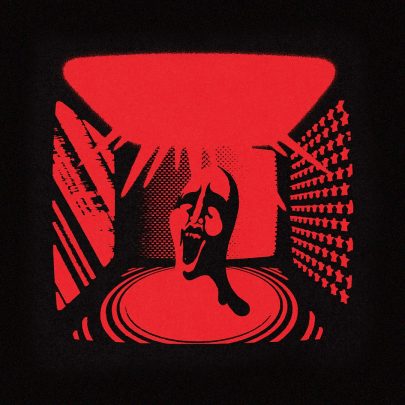Mar 31, 2016 Film & TV
This Kiwi odd-couple tale is designed to charm both here and overseas, and it certainly deserves to.
Read more: An interview with Hunt for the Wilderpeople star Sam Neill.
In 2010, Taika Waititi’s Boy opened in the United States and grossed $US256,000. Translation: in a country of 300 million, maybe 30,000 people paid to see it. For comparison, the New Zealand gross was about $NZ9 million. This remains the most any film has ever made here.
In 2014, Waititi’s What We Do in the Shadows opened in the United States and grossed around $US3.5 million. The New Zealand gross was much smaller, and this is where you have to start sifting the brute numbers, because Boy is a sweet-souled comedy-drama, and Shadows is a blood-vomiting horror-comedy, a genre for which there is a much smaller natural audience. (The other great horror-comedy of the last five years, Cabin in the Woods, wasn’t even put on general release here, on the theory that the returns would not justify the costs.)
So Shadows did good local box office. But in the States, it exploded: it made Waititi’s name. (We know because — should we recoil or rejoice? — he’s been hired by Marvel to direct the next Thor movie.)
The six-million-dollar question: why did Boy take off here but not overseas? One possible answer arrives three shots into the new Waititi comedy-drama, Hunt for the Wilderpeople, which, like Boy, is about a severely underprivileged Maori boy and his not entirely adequate father figure. The film opens with a spectacular, gliding aerial shot of the New Zealand bush. (Barry Crump’s 1986 novel Wild Pork and Watercress, Waititi’s source material, is set in the Ureweras, directly inland from the East Cape setting of Boy, which happens to be where Waititi grew up; in the film, the bush setting goes unnamed.)
Oh, great. Waititi has gone international. Will there be subtitles to help with the New Zild accents?
Second shot: a police car is driving towards us along a metal road, deep in the bush. Third shot: close-up on a shoulder patch: POLICE. Because overseas audiences, of course, won’t recognise a New Zealand police car. Oh, great. Waititi has gone international. Will there be subtitles to help with the New Zild accents?
No… but this is definitely the comedy you make if you want American audiences to keep up: polysyllabic Maori place names absent, culturally specific dialogue likewise. Ricky Baker (the highly likeable Julian Dennison), our 13-year-old protagonist, is a street-smart runaway who speaks fluent gangsta; he and the grim-faced social worker who pursues him after he and his reluctant adopted uncle go bush (a phrase which does not appear in the film either) have a hilariously deadpan exchange about which of them is more like the Terminator.
But then there’s Hec, Ricky’s adopted uncle, an instantly recognisable Kiwi cultural icon who says nothing American audiences will have trouble with because he hardly speaks at all. Hec is our über-laconic, Barry Crump stand-in figure, an ageing and badly battered good keen bushman, and he’s played by Sam Neill, giving his best performance since 2008’s Dean Spanley.
So: a broadly generic odd-couple story, with a Maori character who dresses and talks like an American street kid, plus a deeply Kiwi-specific cultural icon played by our most internationally recognisable actor, who just happened to spend most of Jurassic Park grumpily trekking through the back-country with unwanted children for company.
It’s a very shrewd way of serving local audiences and international ones equally well. Only Kiwis will get the full range of Waititi’s in-jokes, which run to a marvellous John Campbell cameo and a glancing reference to the old Barry Crump Toyota ads. But if this delightful, warm-hearted film doesn’t play equally as well overseas as here, I’ll be amazed.
This article was first published in the April 2016 issue of Metro, on sale now.
Read more: An interview with Hunt for the Wilderpeople star Sam Neill.





